Selected News Articles
2025
Theanne Griffith and Elisa Zhang receive prestigious early-career recognition
 Theanne Griffith, Ph.D.
Theanne Griffith, Ph.D.
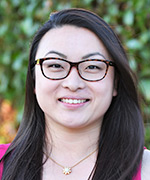 Elisa T. Zhang,, Ph.D.
Elisa T. Zhang,, Ph.D.
Congratulations to Theanne Griffith and Elisa Zhang who received prestigious early-career recognition.
Assistant professors, Griffith and Zhang are among the three UC Davis researchers who have been honored with prestigious awards from two major institutions.
In a rare honor, two of the 10 McKnight Scholar Awards will go to UC Davis neuroscientists this year. Theanne Griffith and Sergey Stavisky both received the prestigious early-career award.
The McKnight Scholar Awards are granted to scientists in the early stages of establishing their own independent laboratories and research careers. Since the award was introduced in 1977, it has funded 291 innovative investigators and spurred hundreds of breakthrough discoveries. Each recipient will receive $75,000 per year for three years.
2 faculty selected as Freeman Hrabowski Scholars by HHMI
Griffith and Elisa T. Zhang, are among the 30 new Freeman Hrabowski Scholars selected from across the United States by the Howard Hughes Medical Institute (HHMI).
Freeman Hrabowski Scholars are outstanding early-career faculty who have the potential to become leaders in their research fields and to create lab environments in which everyone can thrive. Scholars are appointed to a five-year term, renewable for a second five-year term after a successful progress evaluation. In addition, they take part in professional development to advance their leadership and mentorship skills.
Learn more about this prestigious award
Aldrin Gomes Named Presidential Awardee for Excellence in Science, Mathematics, and Engineering Mentoring (PAESMEM)
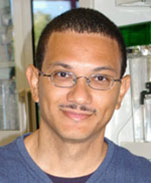 Aldrin Gomes, Ph.D.
Aldrin Gomes, Ph.D.
Congratulations to Professor Aldrin Gomes, who has been named a Presidential Awardee for Excellence in Science, Mathematics, and Engineering Mentoring (PAESMEM).
This award honors individuals and organizations that have demonstrated excellence in mentoring individuals from groups that are underrepresented in STEM education and the workforce.
2024
Kim Barrett wins John Snow Public Health Innovation Prize 2024
 Kim Barrett, Ph.D.
Kim Barrett, Ph.D.
UC Davis Distinguished professor of physiology and membrane biology Kim Barrett has been named the winner of the John Snow Public Health Innovation Prize 2024. The prize is part of the Applied Microbiology International (AMI) Horizon Awards.
Horizon Awards celebrate the brightest minds in applied microbiology, the study of microorganisms and their use. The prize recognizes and supports excellence in this field. It targets those whose work significantly improves public health and environmental sustainability.
Daniah Beleford is a Recipient of the Western Society for Pediatric Research Abbott Nutrition Young Investigator Research Award
 Daniah Beleford, M.D., Ph.D.
Daniah Beleford, M.D., Ph.D.
Congratulations to Assistant Professor Daniah Beleford, who is a recipient of the Western Society for Pediatric Research Abbott Nutrition Young Investigator Research Award. This award is conferred every year to an outstanding pediatric scientist in the early phase of their career.
Theanne Griffith Selected for the Society for Neuroscience 2024 Science Educator Award
 Theanne Griffith, Ph.D.
Theanne Griffith, Ph.D.
Congratulations to Assistant Professor Theanne Griffith, who has been selected as a recipient of the Science Educator Award. This award is supported by the Dana Foundation and honors two neuroscientists who have made significant contributions to educating the public about neuroscience: one who conducts education activities full-time and one who devotes his or her time primarily to research while conducting outreach, policy, and education activities.
Eamonn Dickson Selected for the Graduate Program Advising and Mentoring Award
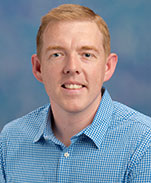 Eamonn Dickson, Ph.D.
Eamonn Dickson, Ph.D.
Associate Professor Eamonn Dickson, has been selected for the Graduate Program Advising and Mentoring Award, for his excellent service to the graduate program, as well as the positive impact on graduate students and colleagues. Congratulations!!
Luis Fernando Santana Elected as AAAS Fellow
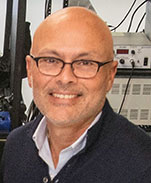 Luis Fernando Santana, Ph.D.
Luis Fernando Santana, Ph.D.
Luis Fernando Santana, professor and chair, and vice dean of basic sciences, has been elected as an AAAS fellow, for work showing the role of calcium channel signaling modalities in regulating muscle excitability in health and disease. Congratulations!!
AAAS fellows are scientists, engineers and innovators who have been recognized for their achievements in science, including research, teaching, administration and science communication.
Theanne Griffith Selected as the 2024 Sloan Research Fellow
 Theanne Griffith, Ph.D.
Theanne Griffith, Ph.D.
Assistant Professor Theanne Griffith, has been selected as a 2024 Sloan Fellow! This prestigious recognition underscores her outstanding contributions and promising future in neuroscience. Congratulations!
Read more about this well deserved achievement
Theanne Griffith Selected for the Louis J. Battan Author's Award - K-12
 Theanne Griffith, Ph.D.
Theanne Griffith, Ph.D.
Assistant Professor Theanne Griffith, is a recipient of the Louis J. Battan Author's Award from the American Meteorology Society (AMS). She received this award for "The Magnificent Makers: Storm Chasers", an imaginative novel that translates elements of meteorology to young readers in an exciting and creative way. Congratulations!
Jorge Contreras is the President-Elect for the Society of General Physiologists
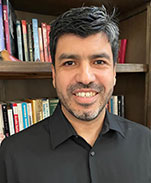 Jorge E. Contreras, Ph.D.
Jorge E. Contreras, Ph.D.
Congratulations to Jorge E. Contreras, professor, who has been elected as the President of the Society of General Physiologists for the year 2024-2025.
2023
Melissa Bauman named Associate Dean for Research Infrastructure
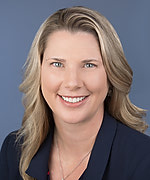 Melissa Bauman, Ph.D.
Melissa Bauman, Ph.D.
Melissa Bauman, professor in the Department of Physiology and Membrane Biology and Director of UC Davis Women in Medicine and Health Sciences, has been appointed Associate Dean for Research Infrastructure, effective through June 30, 2028.
In this role, she is developing a strategic plan for oversight and sustainability of School of Medicine cores and shared resource facilities and assembling a team to finalize and implement the new School of Medicine space policy. She is also the key School of Medicine liaison for leases, infrastructure, patents and intellectual property, among other responsibilities.
Bauman has a robust research portfolio and extensive experience leading large-scale interdisciplinary research and team-science approaches to complex biomedical research questions. With more than 15 years of experience leading NIH-funded neuroscience research that spans the Sacramento and Davis campuses, she has extensive knowledge of shared resource facilities and equipment. She also serves as a Core Director and has experience establishing formal collaborative agreements with multiple UC Davis and UC Davis Health units and cores.
Jennifer Rossi receives 2022 Karen Eilers Award for Staff Excellence
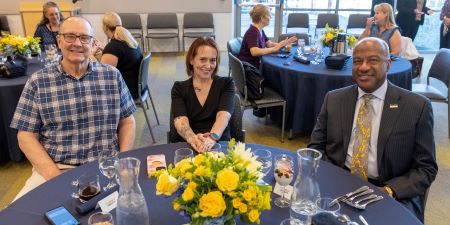
Chief administrative officer, Jennifer Rossi received the 2022 Karen Eilers Award for Staff Excellence, presented by Chancellor Gary May and Chief Executive Officer and Vice Chancellor of Human Health Services David Lubarsky, M.D. for her outstanding contributions to the health system. Congratulations!
In conversation with Theanne Griffith
 Theanne Griffith, Ph.D.
Theanne Griffith, Ph.D.
As Nature Neuroscience celebrates its 25th anniversary, they are having conversations with both established leaders in the field and those earlier in their careers to discuss how neuroscience has evolved and where it is heading. This month, they talked to Theanne Griffith, Assistant Professor in the Department of Physiology and Membrane Biology.
Read the entire conversation from here
Vladimir Yarov-Yarovoy and Jie Zheng are the UC Davis STAIR Grant Recipients
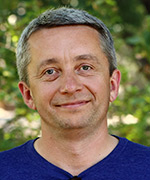 Vladimir Yarov-Yarovoy, Ph.D.
Vladimir Yarov-Yarovoy, Ph.D.
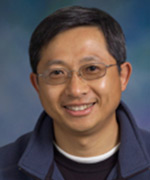 Jie Zheng, Ph.D.
Jie Zheng, Ph.D.
Professors Vladimir Yarov-Yarovoy and Jie Zheng, are the recipients of the UC Davis STAIR grant for their projects, "Optimization of peptide inhibitors to target sodium channels involved in pain signaling" and "PAM peptides as non-addictive anesthetic against chronic pain" respectively. Congratulations!
UC Davis Health Ventures awarded these projects in alignment with its strategic pillar, Investments in the Future of Medicine.
Aldrin Gomes is the 2023 Distinguished Graduate and Postdoctoral Mentorship Award Recipient
 Aldrin Gomes, Ph.D.
Aldrin Gomes, Ph.D.
Professor Aldrin Gomes, a faculty member in the Departments of Neurobiology, Physiology, and Behavior and Physiology and Membrane Biology, and a PREP@UC Davis mentor, was selected for a UC Davis 2023 Distinguished Graduate and Postdoctoral Mentorship Award. Aldrin, one of four awardees selected from over 40 faculty members nominated, was recognized for exceptional guidance and support of UC Davis graduate students and postdoctoral scholars’ academic and professional development.
Study by Keith Baar shows that keto diet boosts size and strength of aging muscles, improves brain health
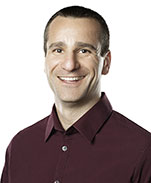 Keith Baar, Ph.D.
Keith Baar, Ph.D.
A new UC Davis Health study found that a ketogenic (keto) diet improves muscle function in older animals by preventing muscle mass loss due to age (sarcopenia). The lead author of the study is the molecular exercise physiologist Keith Baar, a professor in the Departments of Neurobiology, Physiology and Behavior and of Physiology and Membrane Biology.
2022
Luis Fernando Santana is a recipient of the El Premio Titán Award - Inaugural Vanderbilt Basic Sciences’ Hispanic and Latin Heritage Month
 Luis Fernando Santana, Ph.D.
Luis Fernando Santana, Ph.D.
Congratulations to Luis Fernando Santana, professor and chair, and interim vice dean of basic sciences, who has been selected as the El Premio Titán award winner from Inaugural Vanderbilt Basic Sciences’ Hispanic and Latin Heritage Month.
Jorge Contreras is a recipient of the Best Teacher Award - Inaugural Vanderbilt Basic Sciences’ Hispanic and Latin Heritage Month
 Jorge E. Contreras, Ph.D.
Jorge E. Contreras, Ph.D.
Congratulations to Jorge E. Contreras, professor, who has been selected as the Best Teacher Award winner from Inaugural Vanderbilt Basic Sciences’ Hispanic and Latin Heritage Month.
Could monoclonal antibodies replace opioids for chronic pain?
 Vladimir Yarov-Yarovoy, Ph.D.
Vladimir Yarov-Yarovoy, Ph.D.
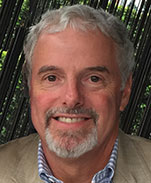 James Trimmer, Ph.D.
James Trimmer, Ph.D.
The NIH HEAL Initiative project led by professors Vladimir Yarov-Yarovoy and James Trimmer, entitled “Development of therapeutic antibodies to target sodium channels involved in pain signaling” has been featured by UC Davis Health News. They have assembled an interdisciplinary team featuring many of the same researchers who are also trying to turn tarantula venom into a pain medication.
Earlier this year, Yarov-Yarovoy and Trimmer received a $1.5 million grant from the National Institutes of Health's HEAL Initiative, an aggressive effort to speed scientific solutions to stem the national’s opioid crisis.
Kim Barrett Elected as Honorary Fellow of the Physiological Society
 Kim Barrett, Ph.D.
Kim Barrett, Ph.D.
Kim Barrett, Ph.D., distinguished professor in the Department of Physiology and Membrane Biology, has been elected as an Honorary Fellow of The Physiological Society by the Board of Trustees. Congratulations!
Honorary Fellows are defined as ‘persons of distinction in Science who have contributed to the advancement of Physiology’. Barrett was elected for the considerable contributions to The Journal of Physiology, distinguished professorship and impressive citations in her field, not to mention her prize lectureships and other multiple honors.
Kim Barrett Awarded the Long COVID Seed Grant Program
 Kim Barrett, Ph.D.
Kim Barrett, Ph.D.
On April 11, interim dean of the School of Medicine Susan Murin announced the awardees of the school’s new Long COVID Seed Grant Program. This program helps to fund investigations of the clinical and pathophysiological aspects of Long COVID. Award recipients will each receive $30,000 in total costs for a 12-month period beginning May 1, 2022, to support research-related expenses.
The awardees included Kim Barrett, Ph.D., vice dean for research at the School of Medicine and distinguished professor in the Department of Physiology and Membrane Biology, for "The role of the microbiota-gut-brain axis in cognitive symptoms of Post-Acute COVID Syndrome." This study investigates the possible association of Long COVID-related cognitive impairment with the microbiota-gut-brain axis.
Research News Article Published in the Journal of General Physiology
 Matthew Marquis
Matthew Marquis
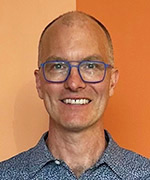 Jon Sack, Ph.D.
Jon Sack, Ph.D.
The Journal of General Physiology published a Research News article entitled "A Kv2 inhibitor traps itself in place" highlighting Matthew Marquis and Jon Sack's recent paper "Mechanism of use-dependent Kv2 channel inhibition by RY785."
International Day of Women and Girls in Science
 The United Nations General Assembly declared 11 February as the International Day of Women and Girls in Science in 2015. We celebrate all of the amazing women scientists in PMB that we are so lucky to have as our departmental colleagues.
The United Nations General Assembly declared 11 February as the International Day of Women and Girls in Science in 2015. We celebrate all of the amazing women scientists in PMB that we are so lucky to have as our departmental colleagues.
2021
Aldrin Gomes is a Recipient of the 2021-22 Chancellor’s Fellowship for Diversity, Equity and Inclusion
 Aldrin Gomes, Ph.D.
Aldrin Gomes, Ph.D.
Congratulations to Aldrin Gomes, Ph.D., who has been awarded the 2021-22 Chancellor's Fellowship for Diversity, Equity and Inclusion. This award is given to Academic Senate or Academic Federation members, who have demonstrated a significant track record of abiding commitment to reducing opportunity gaps for underrepresented students and/or students from underserved communities.
Gomes has created a wealth of knowledge about best practices for enhancing the undergraduate and graduate training of students from underrepresented, disabled and low socioeconomic status. He also serves as principal investigator for the Initiative for Maximizing Student Development program, which identifies and trains underrepresented graduate students to become part of the next generation of research leaders and innovators in biomedical and behavioral sciences.
Colleen Clancy and Melissa Bauman Receives Funding to Support with COVID-19-related Caregiving
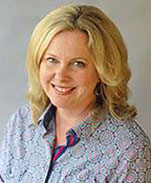 Colleen Clancy, Ph.D.
Colleen Clancy, Ph.D.
 Melissa Bauman, Ph.D.
Melissa Bauman, Ph.D.
The successful application, “A Novel Program to Identify, Support and Retain Clinical Scientists Impacted by Pandemic Caregiving Challenges”, developed by Colleen Clancy, professor and associate vice chancellor for academic personnel and Melissa Bauman, professor and director of UC Davis Health’s Women in Medicine and Health Sciences, who will serve as co-directors, received funding and program support from the Doris Duke Charitable Foundation, its funding partner – the Burroughs Wellcome Fund, to bolster research productivity and allow them to participate in small group, professional development mentoring activities. Congratulations!!
Researchers at UC Davis may have unlocked function of mysterious structure found on neurons
 Nicholas Vierra, Ph.D.
Nicholas Vierra, Ph.D.
 James Trimmer, Ph.D.
James Trimmer, Ph.D.
In a new study published in PNAS, distinguished professor James Trimmer and his colleagues reveal these protein clusters are calcium signaling “hotspots” in the neuron that play a crucial role in activating gene transcription.
Transcription allows portions of the neuron’s DNA to be “transcribed” into strands of RNA that are then used to create the proteins needed by the cell.
The experiment that revealed the function of the neuronal clusters was designed by Nicholas C. Vierra, a postdoctoral researcher in Trimmer’s lab and lead author for the study.
“We developed an approach that let us uncouple the calcium channel from the potassium channel clusters in neurons. A key finding was that this treatment blocked calcium-triggered gene expression. This suggests that the calcium channel-potassium channel partnership at these clusters is important for neuronal function,” Vierra said.
Researchers Identify a Potentially Safer Approach to Opioid Drug Development
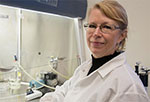 Jennifer Whistler, Ph.D.
Jennifer Whistler, Ph.D.
Opioids are powerful painkillers but their use is hindered because patients become tolerant to them, requiring higher and higher doses, and overdoses can cause respiratory depression and death. A recent study from researchers at the UC Davis Center for Neuroscience contradicts existing thinking about how opioid drugs cause tolerance and respiratory depression, and suggests a new, balanced approach to developing safer analgesics. The work was published July 13 in Neuropsychopharmacology.
“The holy grail of opioid research is to determine the ideal properties of an opioid analgesic for maximizing pain relief while reducing the adverse side effects,” said Jennifer Whistler, senior author on the paper and professor of physiology and membrane biology in the UC Davis School of Medicine. “This goal has become even more urgent in light of the devastation wreaked by the opioid overdose crises and the failure to identify other non-opioid targets for the treatment of severe and persistent pain.”
Turning tarantula venom into pain relief
 Vladimir Yarov-Yarovoy, Ph.D.
Vladimir Yarov-Yarovoy, Ph.D.
Researchers at UC Davis are developing a new type of pain medication from an unusual source — tarantula venom.
The project is part of the NIH Helping to End Addiction Long-Term (HEAL) Initiative, aimed at ending opioid addiction and creating non-addictive therapies to treat pain.
Vladimir Yarov-Yarovoy, a professor of physiology and membrane biology, and Heike Wulff, a professor of pharmacology, are leading the 20-person team using computational biology to turn a poisonous peptide into one that can relieve pain. Peptides are smaller versions of proteins.
Addgene partnered with James Trimmer, receives NIH BRAIN Initiative grant to create open-access recombinant antibody resource
 James Trimmer, Ph.D.
James Trimmer, Ph.D.
Addgene, the nonprofit plasmid repository, has been awarded a grant from the National Institutes of Health (NIH) to develop a recombinant antibody resource. The grant will be funded by the NIH’s Brain Research through Advancing Innovative Neurotechnologies® (BRAIN) Initiative, a U.S. government wide project aimed at revolutionizing our understanding of the brain and brain disorders. The funding will help Addgene create a much needed open-access recombinant antibody/affinity reagent resource for the neuroscience community called NABOR (Neuroscience AntiBody Open Resource).
For this project, Addgene has partnered with James Trimmer, Ph.D., Distinguished Professor of Physiology and Membrane Biology, University of California Davis School of Medicine. Trimmer, who has created thousands of antibodies/nanobodies for neuroscience research, is an expert at validating these tools. Trimmer will be sharing his tools through this platform and conducting the quality control of the NABOR affinity reagents. While the focus of the NABOR platform will be neuroscience reagents and data, the platform can be expanded for any recombinant antibody tool and therefore will grow to serve the entire scientific community.
Protein engineering for chronic pain
 Vladimir Yarov-Yarovoy, Ph.D.
Vladimir Yarov-Yarovoy, Ph.D.
Pain often serves as a vital signal of danger and potential tissue damage: Touching a hot stove or breaking a bone requires an immediate reaction to protect us. Such acute pain lasts only until the stimulus is taken away or the underlying injury has healed.
Departmental faculty member, Vladimir Yarov-Yarovoy, Ph.D., and Heike Wulff, Ph.D., of the University of California, Davis lead a 20-person team using computational biology to engineer a tarantula venom into a new treatment for chronic pain. This basic and translational research is part of the Optimizing Non-Addictive Therapies to Treat Pain research program in the Helping to End Addiction Long-termSM Initiative, or NIH HEAL InitiativeSM.
‘Face to Face’ with scientist aka children’s book author
 Theanne Griffith, Ph.D.
Theanne Griffith, Ph.D.
Departmental faculty member, Theanne Griffith, Ph.D., is the second guest of Chancellor Gary S. May’s new talk show, Face to Face. The episode was released today, and can be watched on YouTube. In the monthly series of video interviews, May said he talks with “students, faculty and staff innovators about what they’re working on and how they’re making a difference in the real world.”
One of UC Davis’ newest faculty members may be focused on researching the way the body sends signals about being cold, but she’s also writing a series of children’s books so kids from underrepresented minorities know they can be scientists.
The creation of The Magnificent Makers
 Theanne Griffith, Ph.D.
Theanne Griffith, Ph.D.
Departmental faculty member, Theanne Griffith, Ph.D., was featured in the NPR Podcast Short Wave.
Author and neuroscientist Theanne Griffith talks with Maddie about her children's book series, The Magnificent Makers, which follows two intrepid third graders as they race to complete science-based adventures.
Listen to the podcast and read more
PMB faculty, Mark Huising is named 2020-21 Chancellor’s Fellow
 Mark Huising, Ph.D.
Mark Huising, Ph.D.
Twelve early-career faculty members, that included the departmental faculty member, Mark Huising, Ph.D., are adding a new title after their names: Chancellor’s Fellow, in recognition of their outstanding work in academia. Each keeps the title for five years and receives $25,000 in philanthropic support for research or other scholarly work.
2020
Eleven UC Davis Researchers Are Highly Cited
 James Trimmer, Ph.D.
James Trimmer, Ph.D.
Eleven UC Davis researchers that included the departmental faculty member, Jim Trimmer, Ph.D., have been named in the annual Highly Cited Researchers 2020 list released by the Web of Science Group, which compiles statistics on scientific publishing. The list identifies scientists and social scientists who have published multiple papers ranking in the top 1 percent by citations in a particular field and year, over a 10-year period.
Citation counts represent how often a particular paper has been cited in other scientific publications.
Colorful tarantula toxins for imaging ion channels
 Jon Sack, Ph.D.
Jon Sack, Ph.D.
One of the tarantula toxin projects from the departmental faculty member, Jon Sack, Ph.D. and his lab has been featured in a press release by the Lawrence Berkeley Lab.
When Jon Sack, brought his lab’s pet tarantula Lucy for a visit to the Molecular Foundry, the fuzzy arachnid was met with some trepidation. Now, Lucy is the star of a new journal cover for ACS Chemical Neuroscience featuring a collaboration with the Foundry that enables imaging of different ion channel structures, or conformations, in a live cell.
Two of the nation’s most inspiring Hispanic scientists are at UC Davis
 Luis Fernando Santana, Ph.D.
Luis Fernando Santana, Ph.D.
The departmental chair and faculty member, Luis Fernando Santana, Ph.D. is one of the two UC Davis researchers that are included on Cell Press’s list of “100 Inspiring Hispanic/Latinx Scientists in America.” Congratulations!
Neuroscientist mom writes science adventure books for all kinds of kids
 Theanne Griffith, Ph.D.
Theanne Griffith, Ph.D.
Departmental faculty member, Theanne Griffith, Ph.D., was featured in the Today show.
In the spring of 2017, Theanne Griffith was a new mom on maternity leave with her first baby girl, Violeta. It was hard. Breastfeeding was so much more challenging than Griffith ever expected, and sleep deprivation was no joke. Still, the pause from her demanding role as a postdoctoral neuroscientist at Columbia University gave her some time to think.
Read more about this news article
Colleen Clancy and Jim Trimmer win the 2020 School of Medicine Research Award
 Colleen Clancy, Ph.D.
Colleen Clancy, Ph.D.
 James Trimmer, Ph.D.
James Trimmer, Ph.D.
Colleen Clancy and Jim Trimmer were honored during the May General Faculty Meeting, when the Dean of the School of Medicine, Allison Brashear announced that they won the 2020 School of Medicine Research Award. Colleen was recognized for her multi-scale computational work on the biophysical mechanisms underlying electrical signaling of cardiac muscle and its modulation by the autonomic nervous system and drugs. Jim was recognized for his work on the molecular and cellular mechanisms that control the expression, spatial distribution, and function of voltage-gated K+ channels and their associated signaling complexes in mammalian brain neurons. Congratulations to Jim and Colleen for this well-deserved recognition!
Computer model predicts how drugs affect heart rhythm
UC Davis researchers develop an easy pre-clinical test of cardiac safety
 Colleen Clancy, Ph.D.
Colleen Clancy, Ph.D.
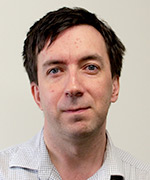 Igor Vorobyov, Ph.D.
Igor Vorobyov, Ph.D.
UC Davis Health researchers have developed a computer model to screen drugs for unintended cardiac side effects, especially arrhythmia risk.
Published in Circulation Research, the study was led by Colleen E. Clancy, professor of physiology and membrane biology, and Igor Vorobyov, assistant professor of physiology and membrane biology.
Clancy is a recognized leader in using high-performance computing to understand electrical changes in the heart.
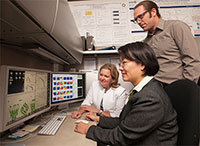 “One main reason for a drug being removed from the market is potentially life-threatening arrhythmias,” Clancy said. “Even drugs developed to treat arrhythmia have ended up actually causing them.”
“One main reason for a drug being removed from the market is potentially life-threatening arrhythmias,” Clancy said. “Even drugs developed to treat arrhythmia have ended up actually causing them.”
The problem, according to Clancy, is that there is no easy way to preview how a drug interacts with hERG-encoded potassium channels essential to normal heart rhythm.
Popular Painkiller Ibuprofen Affects Liver Enzymes in Mice
Marked Differences Between Males and Females
 Aldrin Gomes, Ph.D.
Aldrin Gomes, Ph.D.
The popular painkiller ibuprofen may have more significant effects on the liver than previously thought, according to new research from departmental faculty member Aldrin Gomes, Ph.D. The study in laboratory mice also shows marked differences between males and females.
The work is published Feb. 25 in Scientific Reports.
Read more about this news article
Junctional sarcoplasmic reticulum motility in adult mouse ventricular myocytes
 Luis Fernando Santana, Ph.D.
Luis Fernando Santana, Ph.D.
The recent article by the departmental chair and faculty member Luis Fernando Santana, Ph.D. and his lab, has been selected for APSselect, a collection from the APS that showcases some of the best recently published articles in physiological research. Congratulations!
Article:
"Junctional sarcoplasmic reticulum motility in adult mouse ventricular myocytes"
Benjamin M. Drum, Can Yuan, Ana de la Mata, Nathan Grainger, L. Fernando Santana
American Journal of Physiology-Cell Physiology
2019
The Burns-Pugh lab recognized for safety
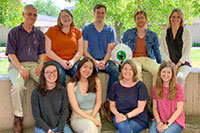 The Burns-Pugh lab, which researches neurodegenerative diseases of the eye, is one of six winners in the inaugural Laboratory Safety Awards program from UC Davis Safety Services.
The Burns-Pugh lab, which researches neurodegenerative diseases of the eye, is one of six winners in the inaugural Laboratory Safety Awards program from UC Davis Safety Services.
The awards panel chose a winner from each of the university’s four colleges and the School of Medicine and School of Veterinary Medicine.
To see what the culture of safety looks like in the Burns-Pugh lab, show up on a Friday – and be prepared to watch 10 people go into action. Those who work with Principal Investigators Marie Burns and Edward Pugh, studying photoreceptors of the retina, pause what they’re doing once a week for “Friday Frenzy” mode.
James Trimmer Named Highly Cited Researcher
 James Trimmer, Ph.D.
James Trimmer, Ph.D.
Departmental faculty member, James Trimmer, Ph.D., is one among the sixteen UC Davis researchers that have been named in the annual Highly Cited Researchers 2019 list released by the Web of Science Group, which compiles statistics on scientific publishing. The list identifies scientists and social scientists who have published multiple papers ranking in the top 1 percent by citations in a particular field and year, over a 10-year period.
Designing a new class of drugs to treat chronic pain
 Vladimir Yarov-Yarovoy, Ph.D.
Vladimir Yarov-Yarovoy, Ph.D.
 Jon Sack, Ph.D.
Jon Sack, Ph.D.
A UC Davis research team, led by Vladimir Yarov-Yarovoy and Heike Wulff, that includes Jon Sack, will receive a $1.5 million grant from the National Institutes of Health (NIH) to develop a novel class of peptides that are better a treating pain and don’t have the side effects of opioids. The grant is part of the NIH initiative Helping to End Addiction Long-Term (HEAL Initiative). Congratulations!!
Learn more about this grant from here »
Growth at Cold Temperature Increases the Number of Motor Neurons to Optimize Locomotor Function - A Study by the Borodinsky Lab
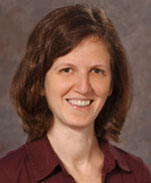 Laura Borodinsky, Ph.D.
Laura Borodinsky, Ph.D.
During vertebrate development spinal neurons acquire specialized identities and form a network that carries out sensorimotor functions. Intrinsic spontaneous electrical activity regulates different aspects of the birth and differentiation of spinal neurons. Whether environmental cues modulate electrical activity in developing spinal neurons and in turn influence their specialization and survival to generate the circuits underlying sensorimotor function remains unclear. Here we show that growing frog embryos at cold temperature results in swimming larvae with an increase in the number of spinal motor neurons compared to larvae raised in warm temperature. This change in spinal cord development optimizes the escape response to gentle touch of animals grown and tested at cold temperatures. The cold-sensitive channel TRPM8 increases Ca2+ spike frequency of developing ventral spinal neurons, which in turn regulates expression of the motor neuron master transcription factor HB9. TRPM8 is necessary for both the increase in motor neuron number of animals grown in cold temperatures and for their enhanced sensorimotor behavior when tested at cold temperatures. These findings suggest the environment modulates neuronal differentiation to optimize the behavioral outcome of the developing organism. Given that fetuses and preterm neonates lack mature thermoregulation, our findings suggest aberrant fluctuations in fetal or neonatal body temperature may impact neurodevelopment.
This new study from the Borodinsky lab, has been accepted and published in the journal Current Biology. Congratulations!!
Read the paper from here (PDF)
Tuning Cardiac EC-coupling during Fight or Flight - A Study by the Dixon Lab
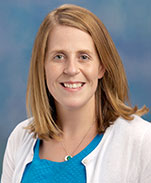 Rose Ellen Dixon, Ph.D.
Rose Ellen Dixon, Ph.D.
New work from the Dixon lab revealing a new facet of β-adrenergic receptor (β -AR) mediated regulation of cardiac L-type calcium channels CaV1.2 appears in the current issue of The Journal of Physiology. The work demonstrates that stimulation of β-ARs with isoproterenol (ISO) induces a never before appreciated, rapid, dynamic increase in the expression and cooperative gating behavior of CaV1.2 channels in the sarcolemma of adult mouse ventricular myocytes. This striking response is PKA-dependent and manifests as the formation of CaV1.2 channel ‘super-clusters’ in response to ISO, in the t-tubule sarcolemma of these freshly isolated cells. Ito et al. demonstrate this with cutting-edge super-resolution imaging approaches in both fixed and live cells and study the functional implications with electrophysiology and Ca2+ imaging approaches. See this dynamic super-clustering occurring before your eyes in a particularly novel and exciting dataset recorded from live ventricular myocytes - view here (video download). On the basis of these data, Ito et al. propose a revised model for β-AR-mediated regulation of CaV1.2 channels in the heart wherein a pre-synthesized pool of sub-sarcolemmal CaV1.2 channel- containing vesicles/endosomes resides in cardiomyocytes and can be mobilized to the sarcolemma to tune EC-coupling to meet metabolic and/or hemodynamic demands.
The article and accompanying ‘Perspectives’ commentary (written by William Louch) appears in the current issue of The Journal of Physiology.
Article:
β‐adrenergic‐mediated dynamic augmentation of sarcolemmal CaV1.2 clustering and co‐operativity in ventricular myocytes
Danica W. Ito, Karen I. Hannigan, Debapriya Ghosh, Bing Xu, Silvia G. Del Villar, Yang K. Xiang, Eamonn J. Dickson, Manuel F. Navedo, and Rose E. Dixon
Perspective:
Channel surfing: new insights into plasticity of excitation‐contraction coupling
William E. Louch
Colleen Clancy, Luis F. Santana and Igor Vorobyov Recipients of the 2018 Dean's Team Award for Excellence in Research
 Colleen Clancy, Ph.D.
Colleen Clancy, Ph.D.
 Luis Fernando Santana, Ph.D.
Luis Fernando Santana, Ph.D.
 Igor Vorobyov, Ph.D.
Igor Vorobyov, Ph.D.
Congratulations to Colleen Clancy's SPARC team that includes Luis F. Santana, Professor and Chair, and Igor Vorobyov, Assistant Professor, to have been selected as a recipient of the 2018 Dean's Team Award for Excellence. Their team is being recognized for outstanding multi-disciplinary team contributions in the area of Research. Congratulations!!
Atomic-scale Simulation of Antiarrhythmic Drug Interaction with Cardiac Cells
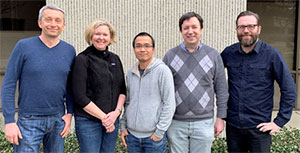 Left to right: Vladimir Yarov-Yarovoy, Colleen Clancy, Phuong Tran Nguyen, Igor Vorobyov and Kevin DeMarco
Left to right: Vladimir Yarov-Yarovoy, Colleen Clancy, Phuong Tran Nguyen, Igor Vorobyov and Kevin DeMarco
To unravel the mysterious mechanisms of drug potency for the treatment of cardiac arrhythmias, a group of researchers at UC Davis have developed novel simulations that provide insights on vital atomic-scale drug-cardiac cells interactions. These simulations, published today in PNAS (Proceedings of the National Academy of Sciences), may lead the way to better development of new antiarrhythmic drugs targeting voltage-gated sodium (NaV) channels, specialized protein molecules in the cardiac cell membrane.
Colleen Clancy is a Recipient of the 2018-2019 Chancellor's Achievement Award for Diversity and Community
 Colleen Clancy, Ph.D.
Colleen Clancy, Ph.D.
Collen Clancy, Ph.D., Associate Vice Chancellor for Academic Personnel and a Professor in the Department of Physiology and Membrane Biology, was this year’s recipient of the Chancellor’s Achievement Award for Diversity and community for her commitment and outstanding work to enhance diversity in UC Davis. Congratulations!!
Voltage Sensors Detained by Tarantula Venom - A Study by the Sack Lab
 Jon Sack, Ph.D.
Jon Sack, Ph.D.
The Sack laboratory has published an article in the Journal of General Physiology determining the statistical thermodynamics underpinning the mechanism by which an especially powerful tarantula toxin prevents an ion channel from opening. They found that the sneaky spider toxin finds unsuspecting channels that are patiently resting, and binds to them such that they their voltage sensors can’t respond to physiological voltage changes anymore. The ion channels the toxin inhibits are important for a host of physiological functions including neuronal signaling, muscle contraction, and insulin secretion. This study of the toxin revealed new aspects of how the ion channels they bind work. Additionally, understanding precisely how the toxin works allows the many researchers who use this toxin for physiological research to understand what the toxin is actually doing to ion channels. This research also revealed new uses of the toxin: it can be used not just to block ion channel currents, but to immobilize their voltage sensors as well. This work was featured in a wonderfully thorough commentary in the Journal, which unpacks the physics and the relevance of the Sack laboratory’s findings.
The article and commentary are soon to be included in a special Journal of General Physiology issue, Molecular Physiology of the Cell Membrane: An Integrative Perspective from Experiment and Computation.
Article:
"The tarantula toxin GxTx detains K+ channel gating charges in their resting conformation"
Drew C. Tilley, Juan M. Angueyra, Kenneth S. Eum, Heesoo Kim, Luke H. Chao, Anthony W. Peng, Jon T. Sack
The Journal of General Physiology DOI: 10.1085/jgp.201812213
Commentary:
"Unlocking the gating mechanism of Kv2.1 using guangxitoxin"
Marco A. Navarro, Lorin S. Milescu, Mirela Milescu
The Journal of General Physiology DOI: 10.1085/jgp.201812254
2018
Digitizing Interactions Between the Brain and the Heart - A New Grant Awarded to Colleen Clancy and Luis Fernando Santana
 Colleen Clancy, Ph.D.
Colleen Clancy, Ph.D.
 Luis Fernando Santana, Ph.D.
Luis Fernando Santana, Ph.D.
UC Davis Health researchers have been awarded $5.2 million over four years from the National Institutes of Health to develop the first computerized model of the relationship between the nervous system and cardiovascular disease.
The tool is expected to lead to new understanding of conditions such as hypertension, arrhythmia, heart failure and stroke, along with how those conditions change in response to treatment.
“We know that imbalance between the nervous and cardiovascular systems contributes to heart disease, however we don’t fully understand how,” said principal investigator Colleen Clancy, professor of physiology and membrane biology. “Our new suite of tools will showcase those interactions in a real-time, visual way and could lead to new interventions for preventing and even reversing heart disease.”
Co-principal investigators on the grant are Eleonora Grandi, associate professor of pharmacology, and L. Fernando Santana, professor and chair of physiology and membrane biology.
Colleen Clancy lauds UC Davis faculty diversity in overseas presentation
 Colleen Clancy, Ph.D.
Colleen Clancy, Ph.D.
When administrators at the University of Zurich sought a guest speaker to discuss promoting women in faculty roles in medicine, they tapped a UC Davis Health leader who has become a prominent voice on the subject.
Colleen E. Clancy, associate vice chancellor for academic personnel and a professor in the Department of Physiology and Membrane Biology and Department of Pharmacology, traveled to Switzerland in mid-September to deliver a talk titled, “Advancing women and other underrepresented groups in medicine: Lessons and successes at the University of California.”
Advancing Diabetes Research: Mark Huising Receives Faculty Research Award
 Mark Huising, Ph.D.
Mark Huising, Ph.D.
Science is about advancing knowledge, work that requires dedication and tenacity. Another component is a keen and critical eye, as discovery is predicated on synthesizing and evaluating the work that came before.
For his discovery of a new type of insulin-producing cell, among other research contributions featured in the journal Cell Metabolism, Associate Professor Mark Huising, Department of Physiology and Department of Neurobiology, Physiology and Behavior, was awarded the 2017-2018 College of Biological Sciences Faculty Research Award.
Jon Horvath, graduate student from Eamonn Dickson's lab earns academic All-America honor
 Jon Horvath
Jon Horvath
Jon Horvath, graduate student from Eamonn Dickson's lab makes the 2017-2018 Google Cloud Academic All-America Division I Cross Country/Track and Field Team with first-team status, as announced by the College Sports Information Directors of America (CoSIDA) on Thursday afternoon.
Horvath, a neurobiology, physiology, and behavior major with a perfect 4.0 GPA, has become the second cross-country runner in the past five years to make the first-team list. The first of the two was UC Davis alumni Trevor Halsted, who received this honor in both the 2014 and 2015 seasons.
University Medalist Emily Eijansantos Learned Value of Perseverance in Lab
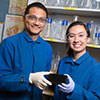 Dr. Aldrin Gomes, Emily Eijansantos
Dr. Aldrin Gomes, Emily Eijansantos
Emily Eijansantos, a graduating senior from Aldrin Gomes's lab, recently received the University Medal, UC Davis' top graduating senior award. In Gomes's lab, she studied the effects of ibuprofen on heart cells and the immunoproteasome.
A Study from the Borodinsky Lab is Highlighted in the Journal of Neuroscience
The brain and spinal cord begin as a group of cells in the embryo that folds in on itself to form the neural tube. Some of the most common birth defects, such as spina bifida, are caused by a neural tube that fails to close completely. Against the prevailing view that the side effects of antiepileptic (AED) drugs contribute to the prevalence of neural tube defects among children of epileptic mothers, a study led by a former postdoctoral fellow, Eduardo Sequerra and a current UC Davis graduate student, Raman Goyal, from Laura Borodinsky's lab discovers that in frog embryos the neurotransmitter glutamate and N-methyl-aspartate (NMDA) receptors play an important part in the proliferation and migration of the cells that form the neural tube, which were compromised in embryos treated with the widely-used AED valproic acid and led to neural tube defects. Understanding the mechanisms of neurotransmitter signaling during neural tube formation may contribute to identifying and developing antiepileptic drugs that are safer during pregnancy.
2017
Martha O'Donnell Approved as an American Physiological Society (APS) Fellow
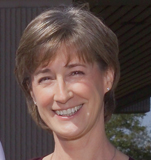 Martha E. O'Donnell, Ph.D.
Martha E. O'Donnell, Ph.D.
Departmental faculty member Martha E. O'Donnell, Ph.D. has been approved as a Fellow of the American Physiological Society. The rank of Fellow is designed to honor distinguished members who have demonstrated excellence in science, contributed to the physiological sciences and served the Society. Fellows are considered to be in the top tier of all eligible members. Congratulations!!
TRPV4 in the Battle of the Sexes - A Recent Paper by the Santana Lab
 Luis Fernando Santana, Ph.D.
Luis Fernando Santana, Ph.D.
The recent paper by the departmental chair and faculty member Luis Fernando Santana, Ph.D., along with Sendoa Tajada, Ph.D., a researcher from his lab, has been accepted for publication in the Journal of General Physiology.
This article has been recommended in F1000Prime as being of special significance in its field by F1000 Faculty Member Mark Dell’Acqua. Read more about this recommendation from here
Abstract: New JGP paper explains sexual dimorphism and tissue-specific activity of TRPV4.
The broadly expressed transient receptor potential vanilloid 4 (TRPV4) calcium channel allows an enormous amount of calcium into the cell (up to 100-fold greater calcium flux than those produced by voltage-gated Cav1.2 calcium channels; 1). In vascular smooth muscle, TRPV4 channels help regulate vascular tone. In this month’s JGP, Tajada et al. provide surprising new insights about how TRPV4 activity is regulated.
Read more about this paper here
Structural Insights into the Atomistic Mechanisms of Action of Small Molecule Inhibitors Targeting the KCa3.1 Channel Pore - A New Paper by Vladimir Yarov-Yarovoy
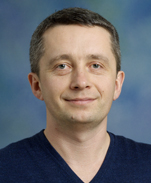 Vladimir Yarov-Yarovoy, Ph.D.
Vladimir Yarov-Yarovoy, Ph.D.
The recent paper by the department faculty member, Vladimir Yarov-Yarovoy, Ph.D., has been featured on the cover of April 2017 issue of Molecular Pharmacology.
Read more about this paper at the following links:
https://molpharm.aspetjournals.org/content/91/4/392
https://molpharm.aspetjournals.org/content/91/4.cover-expansion
Undergraduate course on the 'Physiology of Cannabis' offered this spring at UC Davis
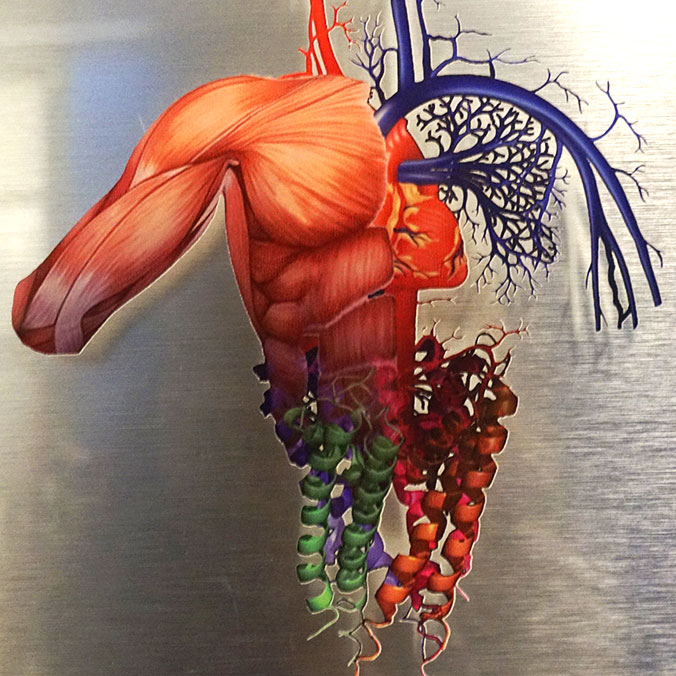
A new undergraduate course on “Physiology of Cannabis” (HPH 115) will be offered at UC Davis this spring to raise awareness and understanding of how cannabis and cannabinoids affect the body.
Aldrin Gomes, Named 2017 Chancellor's Fellow
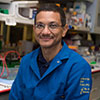 Aldrin Gomes, Ph.D.
Aldrin Gomes, Ph.D.
Aldrin Gomes, Ph.D., was among the Chancellor's Fellows named this year. This year’s class of Chancellor’s Fellows comprises 11 associate professors or recently promoted full professors — rising stars in their fields who have now received one of the university’s highest honors and will retain the title for five years.
Are gelatin supplements good for your joints? A New Study by Keith Baar
 Keith Baar, Ph.D.
Keith Baar, Ph.D.
A new study suggests that consuming a gelatin supplement, plus a burst of intensive exercise, can help build ligaments, tendons and bones.
The study, from departmental faculty member Keith Baar, Ph.D. and his Functional Molecular Biology Laboratory, is published in the January issue of the American Journal of Clinical Nutrition.
2016
Keith Baar Joins National Effort on Links Between Health and Exercise
 Keith Baar, Ph.D.
Keith Baar, Ph.D.
The National Institutes of Health announced a six-year, $170 million nationwide project to dig deep into the molecular changes that come from physical activity, and how they influence health. Departmental faculty member, Keith Baar, Ph.D., is taking part in the effort.
Read more on UC Davis News page and SacBee.
Aldrin Gomes Selected as the 2016-2017 Chancellor's Fellow
 Aldrin Gomes, Ph.D.
Aldrin Gomes, Ph.D.
Departmental faculty member Aldrin Gomes, Ph.D., has been selected as 2016-2017 Chancellor's Fellow. The Chancellor's Fellows Program was established in 2000 to honor the achievements of outstanding faculty members for the quality and significance of their research and teaching.
Ca2+ Entry into Neurons is Facilitated by Cooperative Gating of Clustered CaV1.3 Channels - A New Study by the Santana Lab
 Luis Fernando Santana, Ph.D.
Luis Fernando Santana, Ph.D.
Voltage-gated calcium channels open in unison, rather than independently, to allow calcium ions into and activate excitable cells such as neurons and muscle cells, departmental chair and faculty member Luis Fernando Santana, Ph.D., along with researchers from his lab and the researchers from the University of Washington have found.
The research defies earlier electrophysiology canon and undermines the previously held belief that calcium channels function independently. The study is published online in the journal eLIFE.
Peppers a Hot Topic in Medical Research at UC Davis
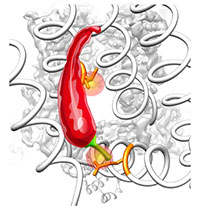
Humans love Sriracha sauce, and the pleasurable, painful sensation that makes us want to slather tacos, rice and barbecue with it and other spicy condiments comes down to one molecule: capsaicin. Departmental faculty members Jie Zheng, Ph.D. and Vladimir Yarov-Yarovoy, Ph.D., in collaboration with researchers in China, recently got an unprecedented, close-up view of this molecule, as well as what happens inside our bodies when we eat the spicy foods that contain it. Read more about this news
2015
Structural Mechanism Underlying Capsaicin Binding and Activation of the TRPV1 Ion Channel - A New Study by the Zheng Lab
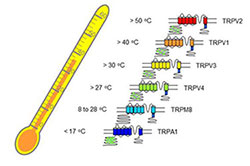
Departmental faculty member Jie Zheng, along with researchers from his lab, have identified the molecular interactions that allow capsaicin to activate the body’s primary receptor for sensing heat and pain, paving the way for the design of more selective and effective drugs to relieve pain. Their study appeared online June 8, 2015 in the journal, Nature Chemical Biology.
Fitz-Roy Curry Elected as a Foreign Member of the Norwegian Academy of Science and Letters
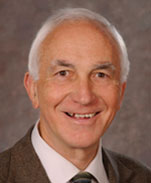 Fitz-Roy Curry, Ph.D.
Fitz-Roy Curry, Ph.D.
Departmental faculty member Fitz-Roy Curry, Ph.D., was elected as a foreign member of the Norwegian Academy of Science and Letters in March, 2015. Curry was introduced into the Academy on May 4, 2015 at the annual meeting in Oslo. He joins the Medical Sciences Group in the Division of Natural Sciences, which has 12 other foreign members worldwide. Curry is recognized for his research on the microcirculation, particularly the mechanisms that regulate exchange of substances between circulating blood and the body tissues. His recent work has focused on recovery of normal function after exposure to inflammatory conditions. Curry has had an active collaboration with faculty and research fellows from the Department of Biomedicine at the University of Bergen, Norway since 2005. Further details of the Norwegian Academy of Science and Letters can be found here.
Nishimaru-Tsuchiya International Award
Curry will receive the Nishimaru-Tsuchiya Award during the 10th World Congress for Microcirculation in Kyoto, Japan September 25-27, 2015. The World Congress is held every 4-5 years. There have been 6 Awards since 1984. On the occasion of the World Congress for Microcirculation, this important award is given by the Japanese Society for Microcirculation to researchers in any country with outstanding achievements in the field of microcirculation research, who have thereby greatly contributed to the development of the Japanese Society for Microcirculation. Further details of this award can be found here.
Barbara Horwitz Honored with AAAs Lifetime Mentor Award
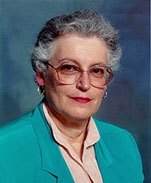 Barbara Horwitz, Ph.D.
Barbara Horwitz, Ph.D.
Departmental faculty member Barbara Horwitz, Ph.D. was honored with AAAs Lifetime Mentor Award for making significant contributions towards increasing diversity in Physiology.
2014
Tarantula Venom Illuminates Electrical Activity in Live Cells - A Study by the Sack and Yarov-Yarovoy Labs
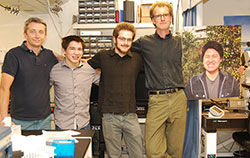 (from left to right) Vladimir Yarov-Yarovoy, Daniel Austin, Sebastian Fletcher-Taylor, Jon Sack and Kenneth S. Eum, who passed away earlier this year. The team has dedicated the work to his memory. "Ken was a talented postdoctoral student, a driven and caring soul who brought joy to the lives of those who knew him," they said.
(from left to right) Vladimir Yarov-Yarovoy, Daniel Austin, Sebastian Fletcher-Taylor, Jon Sack and Kenneth S. Eum, who passed away earlier this year. The team has dedicated the work to his memory. "Ken was a talented postdoctoral student, a driven and caring soul who brought joy to the lives of those who knew him," they said.
Researchers from Sack and Yarov-Yarovoy labs, Lawrence Berkeley National Laboratory and Marine Biological Laboratory in Woods Hole, Massachusetts, have created a cellular probe that combines a tarantula toxin with a fluorescent compound to help scientists observe electrical activity in neurons and other cells. The probe binds to a voltage-activated potassium ion channel subtype, lighting up when the channel is turned off and dimming when it is activated.
This is the first time researchers have been able to visually observe these electrical signaling proteins turn on without genetic modification. These visualization tools are prototypes of probes that could some day help researchers better understand the ion channel dysfunctions that lead to epilepsy, cardiac arrhythmias and other conditions. The study appears in the Proceedings of the National Academy of Sciences (PNAS) on October 20.
Barbara Horwitz a Recipient of 2014 Chancellor's Achievement Award
 Barbara Horwitz, Ph.D.
Barbara Horwitz, Ph.D.
Departmental faculty member Barbara Horwitz, Ph.D. is a recipient of The 2014 Chancellor's Achievement Awards for Diversity and Community in the category of Academic Senate.



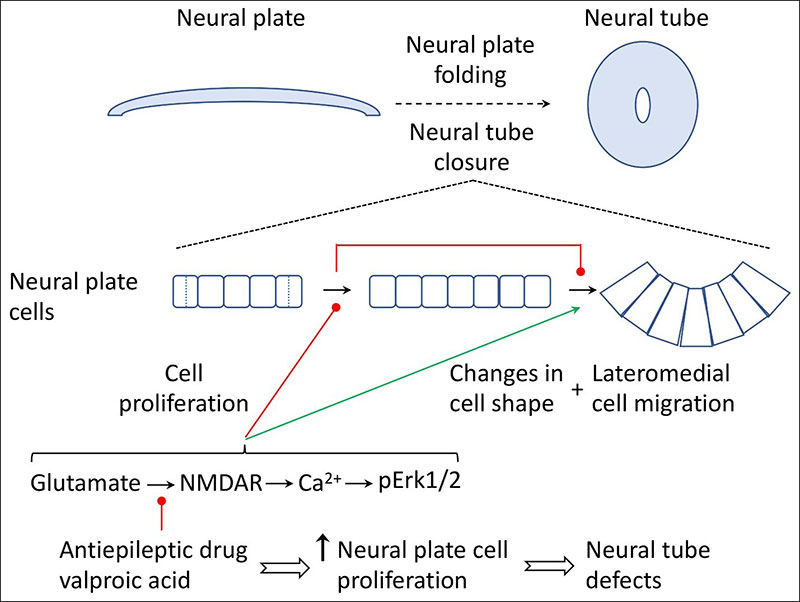
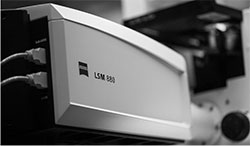
 Make a donation using our secure online system.
Make a donation using our secure online system.